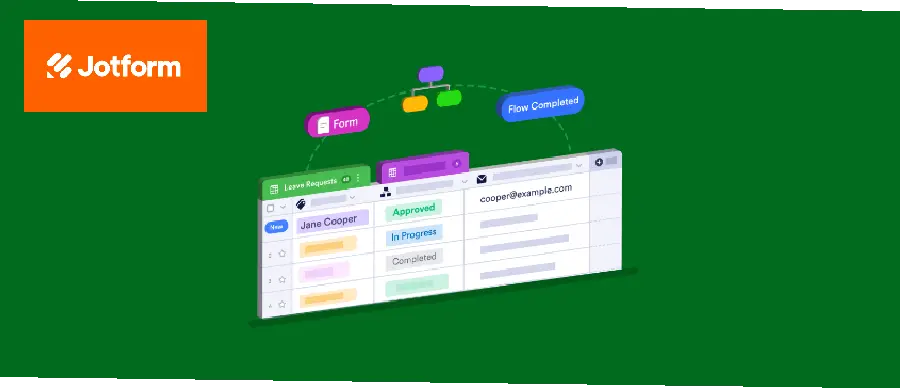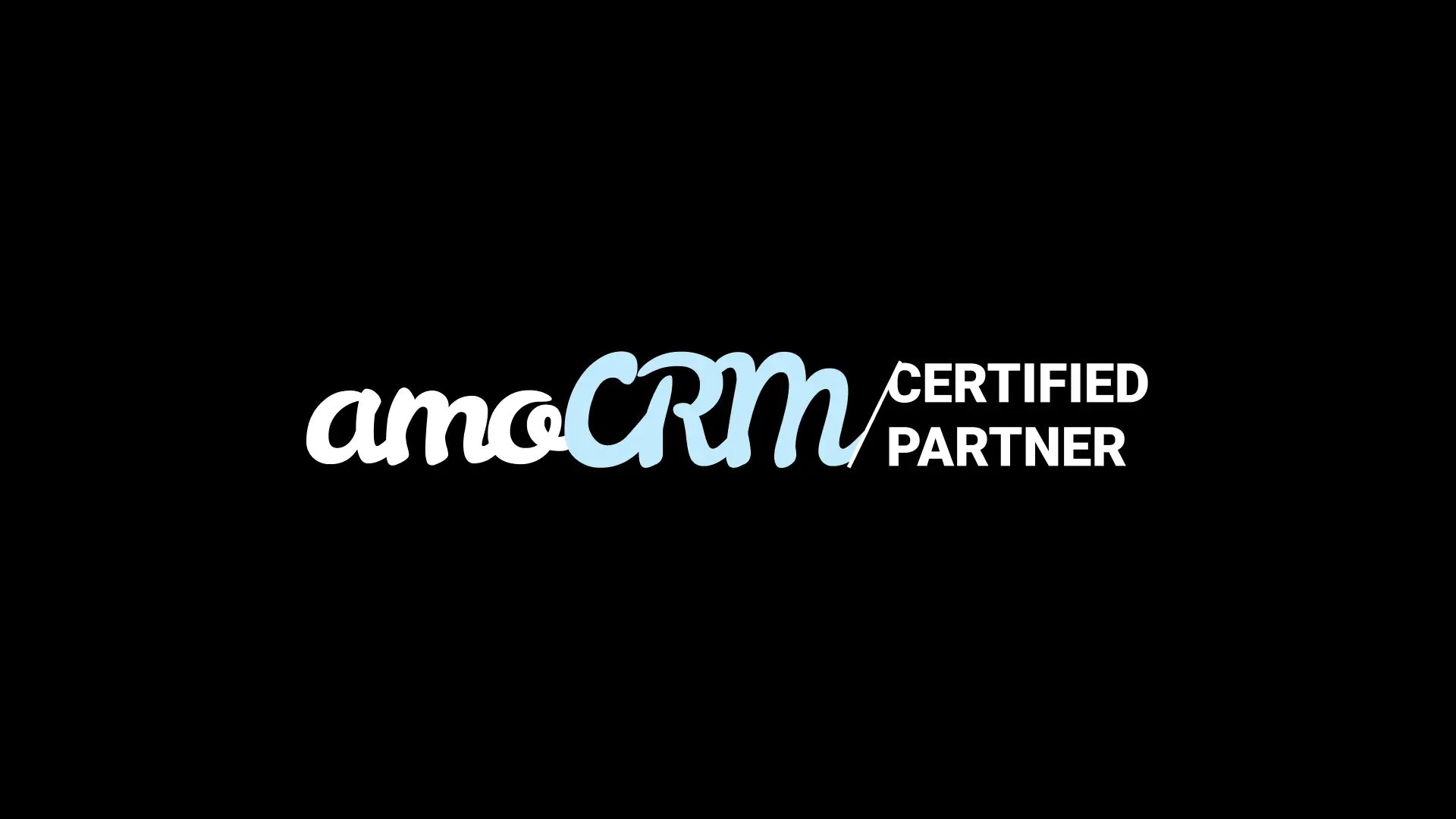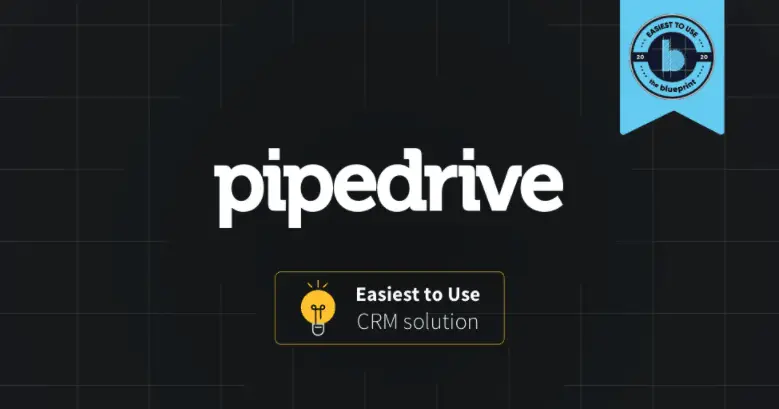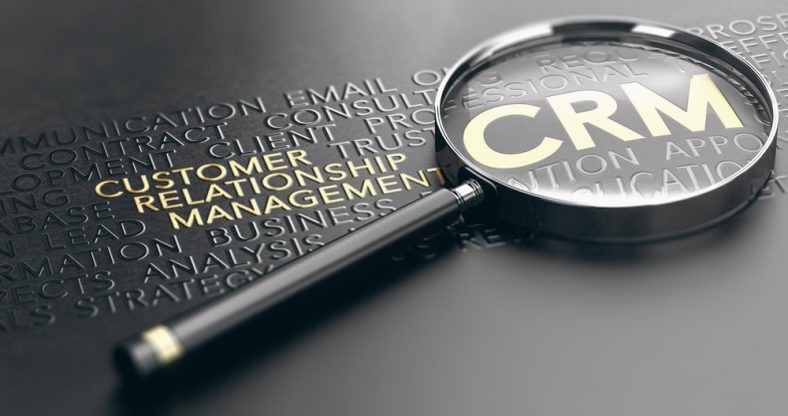
I hope you enjoy reading this blog post.
If you want my team to just do your marketing for you, click here.
CRM software is the most popular software market in the world. Companies are competing to win new clients, and there’s no reason not to.
According to Gartner research, CRM software accounts for 25% of all global enterprise software sales. This figure was $193.6 million in 2018.
The research also predicted that the value of customer relationships will continue to increase, even into 2025.
This is evident when you consider how crucial information has become in this digital age. All companies strive to make the most of the information they have about customers and prospects. This goal is achieved by custom CRM solutions, which can lead to better customer service and higher profits.
For those who are just getting started with CRM tools, I will start by covering the basics. So, first, let’s understand what a CRM is.
What is CRM?
CRM stands for Customer Relation Management. It refers to the management of interactions with customers and prospects during sales. Any strategy or approach that makes use of data to build, improve, and manage customer relationships could be classified as CRM. However, the term is most often used to refer to CRM software or technology.
CRM software is a technology that allows businesses to collect, organize and analyze customer data in order to improve their relationships with customers.
The CRM system stores data on potential and existing customers. This allows you to track every touchpoint in the customer’s journey, including details shared through forms, interactions in marketing campaigns, buying habits, and other details. It can help you tailor your offerings to them, improve customer relationships, and market smarter.
Benefits of CRM
1. It streamlines your sales process.
Workflow management is the heart of any CRM software. It has two main functions, pre-sales or post-sales. Every transaction begins with a lead, which can be taken from any potential customer. The CRM software will place the lead and guide it through the sales process. It will also associate the lead with the relevant records for calls, reminders, documents, and messages.
2. It will alert you to important sales tasks
Based on your settings, CRM software will remind you whenever something is required. It can be set up to send emails or initiate phone calls. All activities with the software are recorded so you have enough time to plan better to close any potential sales.
3. It creates opportunities
After you have closed a deal, the CRM can be used to track and follow up on sales. The software can be used to track customer issues in an integrated help desk or alert you to any question that might indicate a need for cross-selling or upsell. For increased revenue potential, customers can be redirected to the lead pipeline in such cases.
4. It can be integrated with other important business systems
A CRM software, in its simplest form, is a sales pipeline that organizes customer data and transactions. It can also be coordinated with other applications such as eCommerce platforms, help desks, and marketing automation systems.
5. It will help you achieve better sales, marketing, and support results
CRM can drive powerful results for any company when used correctly. CRM software improves customer service, marketing, and sales. CRM software is particularly useful in creating a marketing and sales strategy.
Many organizations fail to realize the many benefits of CRM. These are just a few examples that will help you see the benefits of CRM with greater clarity.
6. Work From Anywhere
With CRM software, you can get to manage your sales and marketing tasks from anywhere. There is really no limit to what you can achieve with CRM software, and it also makes your tasks easier.
7. Reduce Cost
The cost of hiring a full-time customer service or support personnel will definitely be more than getting good CRM software to automate most of the tasks. This way your business could be saving a lot from getting CRM software.
TYPES OF CRMs
There are five types of CRM software.
- Operational: This type of data allows you to manage your business more effectively based on customer data.
- Analytical: A type of CRM that allows data visualization, which gives you greater insight into your customers and their interactions with your company.
- Collaborative: This is where the emphasis lies on how you interact with your distributors and vendors based upon shared customer data.
- Campaign Management: A combination of operational and analytical CRMs that are used to run marketing or sales campaigns using the contact information in the system.
- Strategic: This type places customers first and allows you to use market trends and information about customers to make better business decisions.
Let’s take a closer look at each of them.
1. Operational CRMs
Operational CRMs allow your sales, marketing, and customer service departments to better serve your customers.
The tool allows you to organize information about your contacts and establish standard procedures. This tool can also be used to automate tasks, such as:
- Marketing automation
- Automated sales
- Service automation
This allows different departments to work together in capturing, nurturing, and closing deals for your business.
Integration with tools such as Outreach or MailChimp can allow leads from different marketing channels to be uploaded automatically to the CRM. These tags can be used to assign them to the appropriate stages of your sales cycle, and then they can be further investigated by the sales team.
Your company’s efficiency will improve if all information is available in one place. There’s also less chance of miscommunication or “losing” deals.
Examples of operational CRM
Hubspot, and Salesforce are two popular examples of operational CRM tools.
2. Analytical CRMs
Companies can make better use of customer information by using analytical CRMs. This information can include customer preferences and channels, points of contact, interests, and many other things.
Operational CRMs assign customers to sales funnels, but analytical CRMs allow for a better understanding of them.
Based on contact data, components of data mining can then gather additional information, including trends, and help to recognize patterns in data sets. Companies can use the data they already have to make better business decisions.
Here are some examples of analytic CRM
You can improve customer analysis by using Zoho Analytics and Wave: Salesforce Analytics Cloud.
3. Collaborative CRMs
Collaborative CRMs enable different departments within your organization to share information about customers. Operational CRMs are often focused on sales and marketing, but in this instance, the focus is on customer service.
Collaborative CRMs allow for better information exchange between departments such as sales, marketing, and support. This is because these departments work in different ways, making it more difficult to address customer inquiries. It is much easier to manage customer relationships in collaborative CRMs.
Here are some examples of analytic CRM
Pipedrive or Copper can help you improve your customer interactions and relationship management.
4. Campaign management CRMs
Campaign management CRMs are often classified as operational or analytical CRMs. They kind of combine the features that allow for the use of customer data and insights to create marketing or sales campaigns.
However, it is important to differentiate this type of CRM solution if you are primarily using the contact information to plan and manage better campaigns.
Popular tools can integrate with other email campaign providers like Outreach and Mailchimp to make it possible to run campaigns from a CRM. This is what I have mentioned in the section on operational CRMs.
This example shows that the action can be reversed. The CRM is used to create a campaign and then it is distributed via email integration software.
Here are some examples of CRM campaign management:
ActiveCampaign a CRM that focuses on email marketing campaigns.
5. Strategic CRMs
Strategic CRM is often included in the definition of collaborative CRMs. It focuses on customers. This example shows how collecting customer information and their interactions with your business can help improve their relationship.
Strategic CRMs are this type. This CRM gives you insight right away and adjusts or customizes the way you interact with customers over time. This is a great solution if your business focuses on long-term relationships and not short-term sales.
How to choose the best CRM for your small business
CRM software is an easy way to consolidate small business data and bring your team together. It can be difficult to choose the right CRM software. There are many popular CRM software options, and this list is expanding rapidly.
Although all CRMs have the same basic functionality they can differ in their features, pricing, complexity, and scalability. While some solutions are specific to certain markets and segments, others can be used by all types of businesses.
These eight factors will help you choose the right CRM software to fit your small business.
1. What Are Your Goals?
All CRM vendors claim that their solutions can help you find qualified leads, reduce your sales cycle, increase conversion rates, improve customer service and streamline interdepartmental communication. However, CRM solutions are not all created equal. It is important to identify the problem you are trying to solve and what goals you have for CRM.
Consider your top sales challenges. Are you not generating enough leads, or are you generating too many leads, but not enough qualified leads? Are deals getting stuck in your pipeline due to the fact that reps don’t follow up? What are your top problems and which CRM software can help you address them? Consider whether other customer-facing departments require CRM access (marketing, customer support) and which solutions are most suitable to their needs.
2. Is It Easy To Learn?
Even the most straightforward and intuitive programs can be difficult to get used to. What is the learning curve for CRM? Is training available at an affordable price? CRM systems have many useful functions that are often overlooked because they appear too complex or not clearly displayed.
You’ll get the best value for your money if your team can take advantage of all components of your CRM.
3. Your Budget
CRM falls under the software-as-a-service (SaaS), where you pay a monthly or annual licensing fee and purchase a subscription. Depending on the provider, the monthly cost per user can vary from $0 to $50+. Cloud-based CRM accounts for over 75 percent market share. The monthly fee covers all costs. On-premise CRM means that you are responsible for maintaining the server and other costs. Most small businesses choose cloud-based CRM, with the exception of those working in highly regulated sectors where they must have complete control over all data.
Because they are more complex, enterprise-grade CRM solutions tend to be more costly than those designed for small businesses. However, if you don’t need all the bells and whistles, you can find a CRM solution that is cost-effective.
4. Mobility
Small business owners and their employees have always valued mobility. Mobile CRM allows salespeople to document deal statuses as they move from one meeting to another, or search for customer contact information while working remotely. Mobile data access was crucial during the pandemic-induced resignations.
Cloud solutions can be accessed on any device with an internet connection. However, some CRMs offer better mobile experiences. Spend some time exploring the mobile app when you are choosing your CRM software. Is the mobile app optimized for mobile or a simplified version of the web-based CRM software that is difficult to use on a smaller screen? Is mobile navigation easy to use? Are you able to access the entire product suite? Will it work on all the mobile devices of your employees?
5. Integrations
The first CRMs were “dead databases” and provided one place for all customer information, but it was separate from other software and databases. App programming interfaces (APIs) allow most CRMs to be integrated with your phone system. This includes your digital marketing tools, accounting software, productivity apps, and collaboration apps. With features such as automatic call logging and click-to-call, these integrations can help you sync data and save time.
Integrating with your key systems seamlessly is the hallmark of the best CRM software. Before you spend on CRM software, ensure it is compatible with your existing software and the apps that your team uses most. What integrations are already available in the CRM system? And what integrations can you add? Is the CRM provider open to integrating any cloud solution? Or are there restrictions on integrations that can be done through the app marketplace?
6. Analytics/Reporting
CRM software is more than just a tool for sales. It also allows you to evaluate your workflows and identify areas that need improvement. The CRM software can also help you assess the performance of individual team members to determine if they are on track, need additional training, or should be promoted or given a higher commission.
While all CRM solutions can do this by using advanced analytics and reporting, some are better than others. Keep your sales goals in mind and look for the solution that will help you improve your workforce and workflows. Find out how automated the process is.
OnePageCRM allows sales leaders to automatically create reports for their sales reps and have them emailed on a predetermined schedule. They get all the information they require, whenever they need it, without ever logging in to the system.
7. Flexibility and scalability
A scalable solution is essential for any business, no matter how small it may seem. You also need flexibility if you expect that your workforce will grow and shrink over the years — for example, if you need seasonal workers or want to be ready for economic fluctuations.
Ask yourself: Can the CRM software grow with my company? Can it help me meet my sales and IT goals? Is it possible to remove users (and their subscription fees) easily and add them again as necessary?
8. Vendor Reputation
Ask vendors and even better, ask users: How much does this CRM solution really help your business? Is it reliable and secure? Is it easy to use? What customer service will the vendor offer after you sign?
Customer testimonials and case studies are great resources when choosing CRM software. However, vendors tend to highlight the most satisfied customers.
You can check their reviews on third-party websites, read what tech professionals have to say about the software, and most importantly, get recommendations from your peers, business leaders in similar industries at companies of similar size.
Find out what solutions they are using right now, which ones they used in the past, and why they changed.
There are many CRM options on the market. It’s hard to find the right one for you. This checklist will help narrow down your search for the perfect fit. Then, ask trusted friends and family which vendors they trust.
Best CRM Tools Or Software
1. Wishpond CRM

Wishpond’s purpose is to help you manage your leads. Wishpond’s purpose is to help you manage your leads. Wishpond achieves this by offering a variety of tools to customers as well as useful third-party integrations for programs such as Salesforce, Highrise, and Insightly as well as MailChimp, GetResponse, and AWeber.
Wishpond’s unique and valuable features have allowed it to gain a lot of attention in a very short time. It covers over a dozen applications that meet your internet marketing needs. It helps you attract visitors to your website by creating and sharing visually appealing landing pages.
Wishpond makes it easy to make your website search engine friendly without spending a lot of money or time. WishPond’s interface is simple and straightforward, so no technical knowledge is required.
It is a simple system that allows you to create lists based upon users who have completed different actions on your site. Although I wouldn’t expect much in the way of features, this system works well for you, especially because it integrates with tools such as email marketing, forms, and landing pages.
2. JotForm CRM

JotForm CRM allows you to create flexible online forms that allow you to capture all types of data through highly customizable templates. It is suitable for both small and big businesses. It can handle anything from a simple contact form to taking payment for goods and/or services.
To manage approval requests internally, forms can be used to create and send out forms. This format is perfect for invoices and contracts that need to be printed or emailed.
JotForm emails and mobile alerts keep subscribers informed about submissions. While visual reporting provides valuable insight, it also offers important notifications.
The best thing about it is that you don’t have a need to be a tech expert to make it work. The vast template library and the drag-and-drop editor take care of all the hard work.
It supports 100 integrations. This means that you don’t need to change your current website or business model.
3. Sendinblue CRM
SendinBlue, a cloud-based email marketing platform that is suitable for all organizations, offers a variety of features. It provides marketing automation, transactional emails, and SMS messaging functionalities in a single suite.
SendinBlue CRM allows you to manage all your customer relationships from one location.
There is no installation or special service needed. Simply upload your contact information to get started managing your customer relationships.
All information about your contacts is stored, including notes from previous calls or meetings and any documents you upload directly to the CRM contact profile. You can make any updates one time, and not have to remember where your contact data is located elsewhere.
You can create different lists for your contacts to arrange them based on similar characteristics, source, conversion funnel steps, or any other criteria you choose.
To stay on track, create tasks in your CRM and assign them to different team members. You can automate follow-up emails, contact management, and marketing automation to take things further.
4. AmoCRM
AmoCRM is the first messaging-powered CRM in the world. This versatile, cloud-based sales automation CRM tool is designed for chatting and allows you to engage with customers at a new level.

It is ideal for both B2C as well as B2B business models. The software can convert your first-time contacts to leads and keep an organized database so you can make better sales decisions. It also allows you to see your sales progress and track your performance.
Usability would be the main selling point. AmoCRM tracks everything but makes it easy to manage information in just a few clicks. This can be a huge help to smaller sales teams with more complicated sales processes.
5. Pipedrive CRM

Pipedrive is an excellent CRM solution for small to medium-sized businesses that need to quickly get up and running. Pipedrive is a standard CRM system that does not require extensive customization or setup. Instead, it comes with a pre-built sales pipeline that can easily be modified to fit your business processes. Once you have imported data, you can begin managing customer relationships within minutes. Pipedrive provides a visual interface that allows managers and users to quickly see the status of their company.
Pipedrive offers four levels of service. Each tier has more functionality and customization options. These include automated workflows and custom fields. The three first tiers, Essential, Advanced, Professional, are available monthly or annually. Enterprise is the highest tier and requires a minimum of 10 users.

Leave a Reply